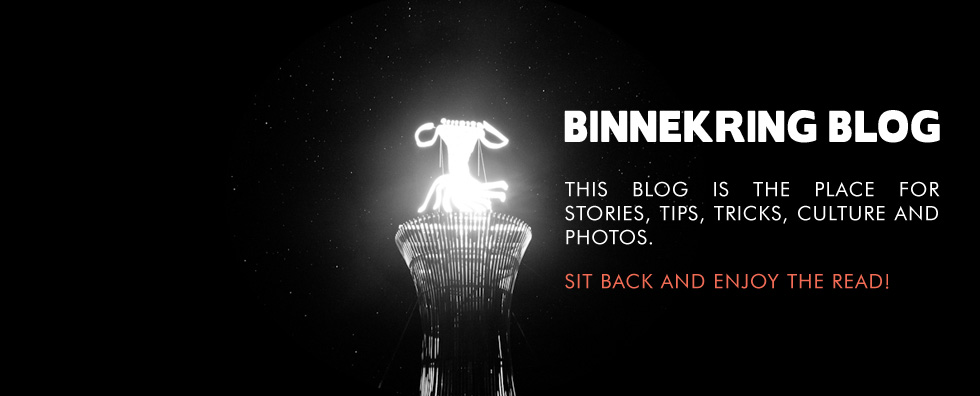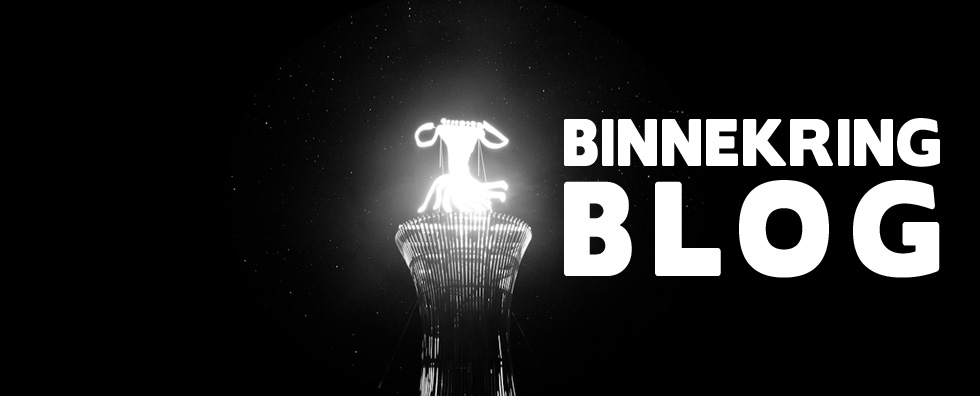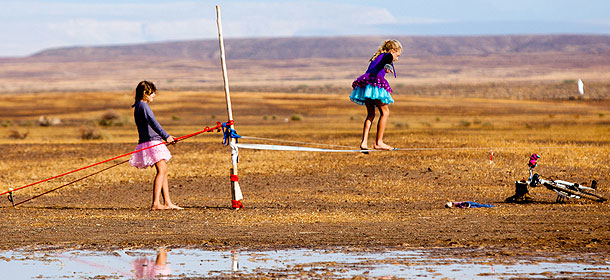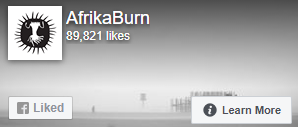BINNEKRING BLOG
Bringing Children to the Burn – Part 1
I am planning to write a number of health and safety related posts, principally to try promote what I call mindful purpose-driven participation. Essentially this means that I hope to encourage participants to self-regulate, to internalise the ‘police person’ within themselves. AfrikaBurn is what Hakim Bey calls a T.A.Z (Temporary Autonomous Zone). The event seeks to create a temporary space that elude formal structures of control, a non-hierarchical system of social relationships seeking to concentrate on the present and on releasing one’s own mind from the controlling mechanisms that have been imposed on it. (for more information, see http://hermetic.com/bey/taz_cont.html)
AfrikaBurn is a TAZ, it creates a temporary community outside and beyond the default world. Through the 11 principles of the event (https://old.afrikaburn.org/about/guiding-principles) as well as the immediacy and practicality of the site, many participants will find AfrikaBurn a refreshing mix of personal freedom to express, explore and be, mixed with a tangible feeling of connectedness to a community. Many find an almost nostalgic presence of being within a positive nurturing communal space so different from the consumerist, removed, fearful and boundaries ridden world they leave to come to Tankwa Town.
AfrikaBurn can be a wonderful family experience, an ‘Alice in Wonderland’ family camping excursion. The event has a wide range of people and increasingly more participants who bring children. A good understanding of the dynamics and needs involved in bringing children to the event is however essential in order to make the experience a good one. That’s what this post seeks to assist with.
PREACHING TO THE CHOIR
AfrikaBurn takes a lot of effort informing and preparing participants. We have a website, a forum, info evenings and publish a survival guide that is an essential read for the event. Over the years I have rangered and given talks it is often a frustration that the people who most need the information and advice are the ones who do not use it. One often feels one is preaching to the choir, to the point where there is a danger of those well versed in burner best practice and ideology becoming what is known as ‘burnier than thou’. The seasoned burners in a neat camp, tent facing away from wind, pegs capped and marked, moop nowhere to be seen muttering scorn for the recent ‘weekend warriors’ arriving on Saturday in a big SUV with a large sound system, the parents immediately starting up the braai as the teenagers disappear on their bikes into the dust haze. One can quickly see people new to the event.
In writing this I hope that as many new burners thinking of bringing children to the burn will read this. Not that I feel it’s the definitive source, but more in the hope it starts a deeper process of engagement, and that it promotes and prompts new burners to seek help. I also hope that it prompts the seasoned burners to reach out to the virgins in a cooperative, non-judgemental manner. After all it is all about civil responsibility. We all benefit from an event, a movement that is empathetic and proactive to the needs of the community. We all benefit from a community that is mindful of those most vulnerable and needing care within it. One of these days I plan to bring my own sons to AfrikaBurn so this is about sowing seeds. Safe happy children at AfrikaBurn benefits us all.
YOUR RELATIONSHIP WITH YOUR CHILDREN
The first and most important factor to consider, when thinking of bringing your children to AfrikaBurn, is the strength and nature of your relationship with them. AfrikaBurn is a demanding environment, and from a health and safety perspective people sometimes underestimate the environment. They benchmark expectations and perceptions with those of the ‘normal world’, so if I can handle six beers on a night’s drinking in Long Street, or Melville, I will be able to handle six beers in Tankwa Town. AfrikaBurn demands more than the norm! It tests you and puts your body under greater stresses than usual.
If you have a shaky or disconnected relationship with your children then do not bring them. AfrikaBurn is not the event to reconnect with your separated teenage daughter who you rarely see, and nor is AfrikaBurn the event to be experimenting with new parent and child dynamics. Why do I say this? Well mainly because the primacy (newness / rawness) and the possibility embedded in the event. Secondly the event presents a large amount of potential freedom and independence for both parents and children. Your bond with each other should be strong, strong in order to hold the trust you will need, strong to underpin the boundaries and behaviour you contract with each other, and finally strong to establish a platform through which you can communicate and process the experience.
I strongly recommend that you mindfully contract with your children. Contracting is a fluid and on-going process of setting and agreeing on the boundaries, rules, expectations and plans that exist between you and your children. Start planning and discussing this with your children before the event, it helps for you both to be exploring and talking about what you expect AfrikaBurn to be and entail before you even leave for Tankwa Town.
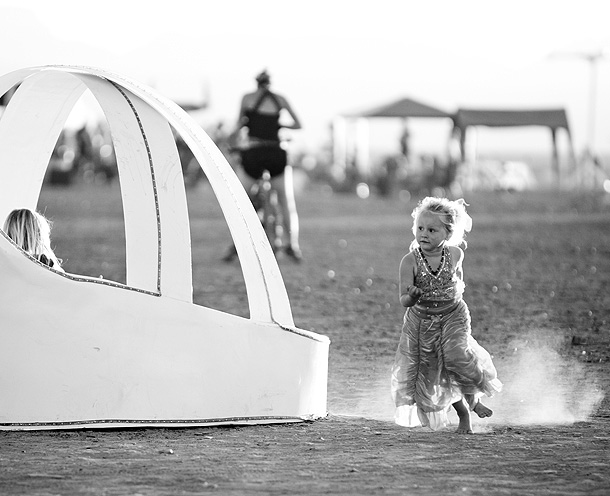
THE AGE IS KEY
This strongly links to the relationship you have with your children. Babies and small children require a great deal of planning, logistics, and managing your expectations. They are very dependent on you, they tie you into a continuous cycle of maintenance. This dependence and closeness can be part of a magical AfrikaBurn experience however. Experiencing AfrikaBurn with small children increases the immediacy of the event, the experience is echoed through their reaction and many parents find a peaceful connectivity with their young children. The event is not just about the nights, late burns, and theme camp parties. I always enjoy those early morning encounters with parents and small children out early before the heat of the day exploring Tankwa Town. Small children however require better preparation and planning – AfrikaBurn has no supermarket to purchase nappies and the event is hot, dusty, very dry, and windy. Small children need to be wary of sunburn, heatstroke, and may find the noise alarming. Think of where you want to camp, create shade space for midday play and snoozes, insist on hats, bring a stroller with big wheels to handle sand and rocks, a few large muslin clothes that can be dampened to shade and cool. Finally with small children come with support so that you can also take “me” time.
Children aged four to twelve are in the golden age for AfrikaBurn. They still have the wonder of those younger, they need and want you as parents but can venture forth and explore. Most children at the event are in this age range and often form large gangs with other children.
Teenagers are for me the most problematic age group. Developmentally they are less prone to stay within the contract, within the agreed boundaries, and they can as part of the natural process of teenage rebellion actively disobey, seek new experiences, sneak out to see what the adults do at night and thus encounter situations that you would rather not have them experiencing. Linked to this is the possibility that they will not disclose what they have experienced with you. Teens can also not be depended on to care for younger siblings; the mysteries of Tankwa Town can be too tempting. Finally teens do not always look their age and your 16 year old daughter who to you is still a little girl, may be seen as an adult woman at the theme camp giving out alcoholic punch a few camps down. Consider bringing teens to the event carefully – AfrikaBurn for older children, as will be covered later, can be a challenging space and can lead to you both having to process some complex issues such as nudity, sexuality, alcohol and substance use, and processing complex social issues such as your son coming into your camp where you are braaing to loudly state that “meat is murder” according to some beautiful people who vibrate at a higher level of consciousness that he spent the day with and who have encouraged him become a vegan.
WHAT IS THEIR DAY-TO-DAY EXPERIENCE?
What is your child’s day-to-day experience in the default world? How different will it be to the day-to-day experience of Tankwa Town? If your son spends all his time alone playing games on his computer then AfrikaBurn will be a very difficult place for him. As parents we often think and consider what our children need and should be experiencing without necessarily seeing their day-to-day through their eyes. Certainly children need new experiences and should be pushed out of their normal boundaries; but balance that with integrating the familiar and comfort making factors that they connect with. Encourage your children to bring those comforts that will help them feel at home in Tankwa Town. Anxiety can be lessened for your children if they have a safe and familiar nest in Tankwa Town.
Consider making your camp child friendly, with a number of play / relaxation areas for them to just be in. Blow up paddle pools, a box of trucks, a make-up and dress-up table for dolls can all help your child feel at home in this new home. Consider that your day-to-day co-habitation with your children often entails independent processes for the whole family; we all come home, I start making dinner, my older son does his homework in his room, my daughter plays with her Lego on the patio. In Tankwa Town you may all be in a shared tent; you certainly are away from the usual day-to-day activities. Consider the implications and make steps to allow your children to take ownership of where you camp and feel comfortable hanging out there.
It very much helps to see things from your children’s perspectives when you get to Tankwa Town. Their size means they may see different landmarks: for example, they may not be able to see the big silver flag that you use to navigate yourself back to your tent. They will not see the site as a driver would, and may not be used to reading signs or markers. Make an effort to familiarise yourselves as a family to the site – it’s very easy to get lost. The site also changes over the course of the festival and even depending on the time of day with the play of light and shadows. Seeing the event through their eyes allows you to connect at their level and share a common understanding.
Physical conditions, medication and sensible precautions
Please read the survival guide! Get your children to read it, and encourage everyone to read the thing. AfrikaBurn, as mentioned earlier, is a demanding environment. Have a look at our FAQ and you will see that in terms of facilities “in the spirit of Radical Self Reliance, basic infrastructure in the form of toilets, roads, signage, medics, health and safety officers and an airstrip are provided. All other requirements are created by the participants themselves.” (https://old.afrikaburn.org/the-event/faq)
You need to bring everything that your children will need for the entire event. This means food, nappies, toys, shade, but it also includes all medication and support needs and possible eventualities. AfrikaBurn is hot, very dry, windy, dusty and the nights can be filled with repetitive thumping dance music. Please consider loads of sunblock, ear plugs, skin moisturiser (I find my knuckles and knees often crack), good walking shoes, and kit to treat blisters. Apply lotion on your kids every few hours, get them to wear a hat that can be tied on, encourage them to wear light loose layered clothing, bring spray bottles / water guns to mist and cool down.
Bring all possible medication and back-up medication. If your child suffers from respiratory problems, allergies, skin sensitivity, has food intolerances or responds to certain physical factors, have the needed resources to address them. AfrikaBurn has dedicated medical staff to deal with emergencies, but we expect you to have the resources to deal with headaches, minor cuts and bruising, tummy complaints and all the other average childhood maladies that may affect your child.
Consider that you and your child will be walking a lot more and engaged in more physical activity than the norm. Establishing some quiet TLC time everyday to rest, treat blisters, recount and listen to what was encountered on the days exploration, play some card / board games and generally connect as the family unit. For many AfrikaBurn fosters a wonderful reconnection of the social capital that is held within the family.
WHO IS RANGER BOB ANYWAY?
Hello folks
Since this is my first post I thought I would do some context setting.
My name is Jonathan Hoffenberg and I have been the head ranger of AfrikaBurn since the first event in 2007. I am a social worker having previously been a chef who got into training development work. I returned to university at the age of 30 to train as a community development focused social worker. This involved training in community development, clinical work, probation work (spending a year in an awaiting trial facility for teenage boys, as well as some time in Pollsmoor Prison) and I ended up working for the university in student recruitment and orientation.
Since 2007 I joined a NGO linked to the University of Cape Town called SHAWCO and currently mentor / manage student-run education outreach projects in Cape Town’s townships. I am a father of three boys Max (12), Noah (8), and Eli who is currently 2 months old and counting. My academic interests are community development and reflectivity, this essentially related to the context and baggage that we bring to community work, especially in a relationship of privileged people intervening in and with underprivileged communities.
I am the current head of health and safety at AfrikaBurn.
Photo credits: Jonx Pillemer

